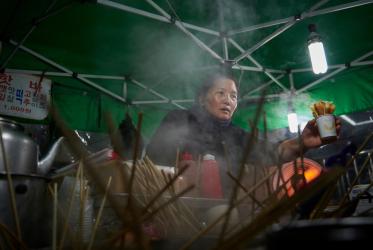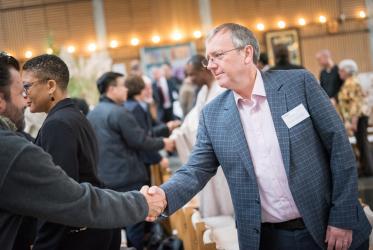Displaying 1 - 20 of 43
Climate crisis fuels existing water injustice
27 October 2021
CCIA meets in Brisbane with focus on Pacific regional priorities
19 February 2020
Worldwide prayer campaign begins to end 70-year Korean War
06 February 2020
Thursdays in Black: sharing support, transforming lives
21 February 2019
WCC celebrates “living fellowship”
20 June 2018
Asian church leaders exchange ideas on diaconia
19 December 2017
The motor engineers of the ecumenical movement
18 September 2017
G7 must address famine
22 May 2017
“Overcoming economic injustice” vision of WCC’s Athena Peralta
23 February 2017
During Lent, a “carbon fast” can honour God’s creation
09 February 2017
Plans for 2017 decided by WCC Executive Committee
01 December 2016
Prayer and advocacy for Korean peace and reunification
04 August 2016










